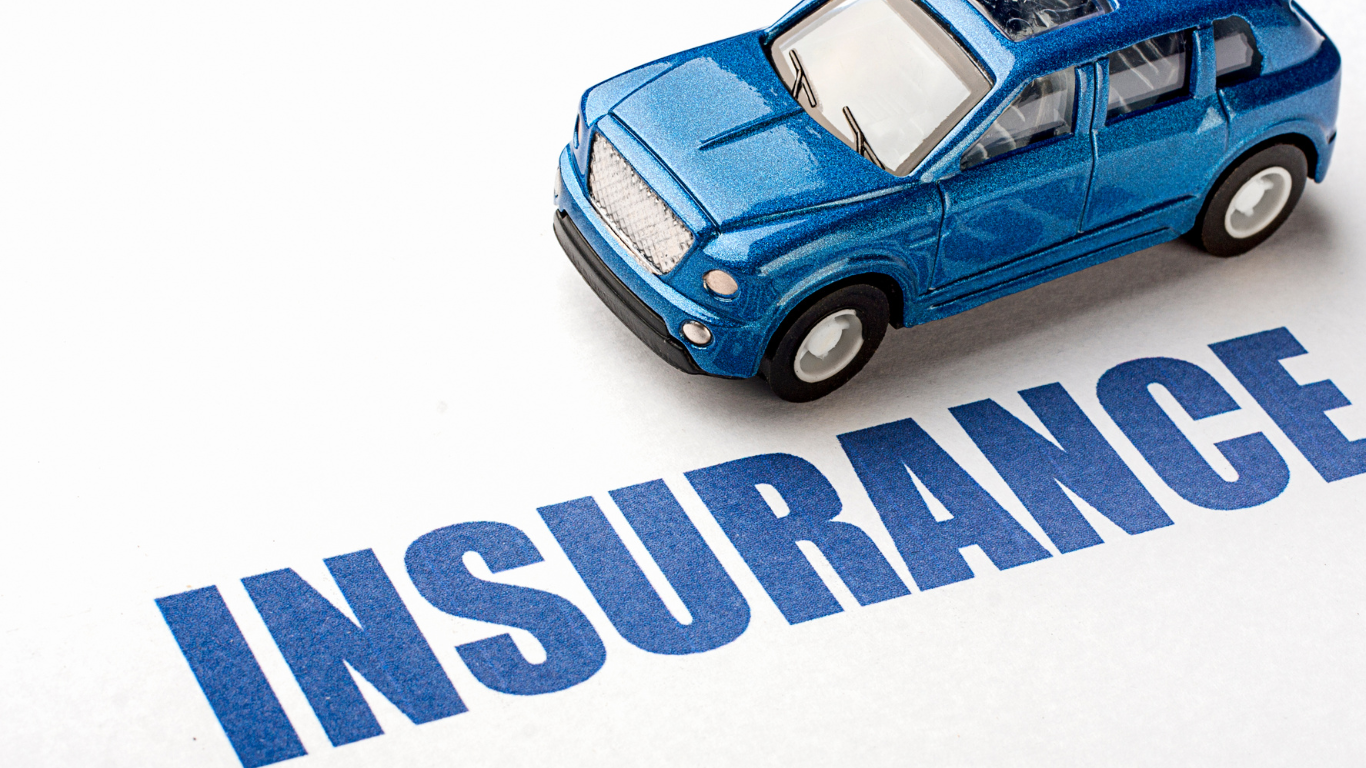Is Tire Damage Covered by Car Insurance?
Every automobile owner has encountered an emergency circumstance in which they walk out to their car only to realize that one of their tires is flat. You might be wondering if your automobile insurance will cover their replacement or repair if you have it.
The answer is yes in certain cases and no in others. In this post, we’ll discuss auto insurance-related themes to assist you in making smart choices, such as when tire damage may be covered by car insurance and when it won’t.
This comprehensive article will teach you all you need to know about tire damage and how to file a claim for it.
When does vehicle insurance cover tire damage?
A normal auto insurance policy won’t cover the cost of new tires unless you meet certain requirements and have collision or comprehensive coverage.
You won’t be covered by auto insurance if your tires go flat as a result of tire wear and tear. Most car insurance policies cover unforeseeable, unpredictable events.
If your tires go flat due to tire wear and tear, auto insurance will not compensate you.
Also, insurance companies frequently refuse to pay for tire damage if you only have liability cover. Only vehicle damage to another driver’s car is covered by liability insurance in crashes that you cause.
If you simply have liability insurance, your insurer will not cover tire damage.
What is included in tire damage car insurance?
• The expense of replacing a damaged tire: You’re probably wondering if vehicle insurance covers tire replacement. Your car’s tire could be damaged due to a variety of factors, including cracks, punctures, cuts, and bulges. In some cases, a replacement may be the best solution. As a result, the level of cover you select should be equal to the cost of replacing the damaged tire.
• Labor costs: Labor fees will be paid in order to remove the damaged tire and install the new one. If you have automotive tire insurance, the insurance company will pay your labor costs for refitting, removing, and rebalancing the wheel, among other things.
• Unintentional Tire Damage and Loss: Accident-related tire damage may include cutting, crushing, bursting, or bulging. As a result, it seems sense to have both comprehensive cover age and tire damage insurance protection.
Does auto insurance cover tire damage from potholes?
Yes, but only if you have collision insurance. Although this cover age is optional, insurance may protect you if you collide with something like a guard rail, telephone pole, or pothole. Although potholes generally only result in minor tire or wheel damage, encountering one could produce alignment or suspension issues for your car.
In general, filing a claim for pothole damage only makes sense if the repair costs exceed your deductible.
Does auto insurance cover tires being slashed?
If your tires are slashed, your comprehensive insurance will pay for repairs or replacements. Other sorts of vandalism, such as damaged windows and car theft or graffiti, are also covered by comprehensive insurance.
According to Consumer Reports, a tire repair might cost between $130 and $190 depending on the sort of vehicle you drive. If the cost of replacing your tires is less than your deductible, you can avoid filing a claim and perhaps increasing your insurance premiums.
Does comprehensive insurance cover flat tires?
Auto insurance may cover flat tires, albeit this varies by insurer. The majority of auto insurance companies consider flat tires to be a wear-and-tear issue, and auto insurance does not cover basic maintenance or wear-and-tear. Yet, your insurance could pay for tire damage if you accidently run over some broken glass on the highway.
If you find yourself stranded on the side of the road, roadside assistance can pay for someone to come and replace your flat tire with a new one, regardless of what caused it; you’ll likely only need to pay for the tire itself.
Does auto insurance cover nails in tires?
Yeah and no. The real answer is, it depends. Your insurance will not pay out if you run over the nail as part of routine wear and tear on your car. But, if hitting the nail in any way caused the collision that damaged your vehicle, your auto insurance may be able to pay for the damage. You must ensure that your vehicle is completely protected.
Does automobile insurance cover tire blowouts?
Complete insurance is the word for insurance that covers occurrences involving tire blowouts. This insurance is needed when your car receives damage that was not caused by an accident or collision, which collision insurance covers.
If you are unsure about the type of insurance cover age you have, you should consult with your insurance agent or a representative of your insurance provider.
The tire blowout may have been influenced by the tire itself. If the tire was defective, a manufacturer’s warranty might cover the damage. If a manufacturing error caused the tire blowout, the tire maker may be held liable for the damage.
Does vehicle insurance cover loose wheels on cars?
No, because tire rotation is considered standard maintenance, motor insurance typically does not cover it. While tire rotation can be contentious, NHTSA officials recommend doing so every 5,000 to 8,000 miles to prevent uneven tire wear (since your front tires tend to do more of the work with braking). A tire rotation frequently costs less than $60, which is good news.
Does auto insurance cover stolen tires?
But, much like with a vandalism claim, you’ll likely need a police record to lodge a claim. Comprehensive insurance would also cover stolen tires. Comprehensive cover age will replace stolen auto components and pay for your car if it is stolen, but it will not pay for other items stolen from your car, such as a phone or rucksack.
How can I file an insurance claim for a sliced or damaged car tire?
You must file the claim online, by phone, or in person at the insurer’s office.
Prior you make a claim should have these things on hand:
• When and where did the event take place?
• Where is the harm?
• Where did you leave your car?
• Police file number • Contact information • Instructions on how to contact your lender or, if applicable, the car leasing company
1. An assigned claims associate will thereafter contact you.
2. Your insurer will compile the relevant information and schedule a vehicle inspection.
3. Describe the cover age and any potential impact of your deductible.
4. You will be informed about the claims process.
5. Reply to any enquiries concerning your claim.
6. Check your insurance to see if you are eligible for compensation for a rental car or public transportation while your vehicle is being repaired.
7. Once the verification is complete, you will receive your claim money.
Is Tire Damage Covered by Car Insurance?
Every automobile owner has encountered an emergency circumstance in which they walk out to their car only to realize that one of their tires is flat. You might be wondering if your automobile insurance will cover their replacement or repair if you have it.
The answer is yes in certain cases and no in others. In this post, we’ll discuss auto insurance-related themes to assist you in making smart choices, such as when tire damage may be covered by car insurance and when it won’t.
This comprehensive article will teach you all you need to know about tire damage and how to file a claim for it.
When does vehicle insurance cover tire damage?
A normal auto insurance policy won’t cover the cost of new tires unless you meet certain requirements and have collision or comprehensive coverage.
You won’t be covered by auto insurance if your tires go flat as a result of tire wear and tear. Most car insurance policies cover unforeseeable, unpredictable events.
If your tires go flat due to tire wear and tear, auto insurance will not compensate you.
Also, insurance companies frequently refuse to pay for tire damage if you only have liability cover. Only vehicle damage to another driver’s car is covered by liability insurance in crashes that you cause.
If you simply have liability insurance, your insurer will not cover tire damage.
What is included in tire damage car insurance?
• The expense of replacing a damaged tire: You’re probably wondering if vehicle insurance covers tire replacement. Your car’s tire could be damaged due to a variety of factors, including cracks, punctures, cuts, and bulges. In some cases, a replacement may be the best solution. As a result, the level of cover you select should be equal to the cost of replacing the damaged tire.
• Labor costs: Labor fees will be paid in order to remove the damaged tire and install the new one. If you have automotive tire insurance, the insurance company will pay your labor costs for refitting, removing, and rebalancing the wheel, among other things.
• Unintentional Tire Damage and Loss: Accident-related tire damage may include cutting, crushing, bursting, or bulging. As a result, it seems sense to have both comprehensive cover age and tire damage insurance protection.
Does auto insurance cover tire damage from potholes?
Yes, but only if you have collision insurance. Although this cover age is optional, insurance may protect you if you collide with something like a guard rail, telephone pole, or pothole. Although potholes generally only result in minor tire or wheel damage, encountering one could produce alignment or suspension issues for your car.
In general, filing a claim for pothole damage only makes sense if the repair costs exceed your deductible.
Does auto insurance cover tires being slashed?
If your tires are slashed, your comprehensive insurance will pay for repairs or replacements. Other sorts of vandalism, such as damaged windows and car theft or graffiti, are also covered by comprehensive insurance.
According to Consumer Reports, a tire repair might cost between $130 and $190 depending on the sort of vehicle you drive. If the cost of replacing your tires is less than your deductible, you can avoid filing a claim and perhaps increasing your insurance premiums.
Does comprehensive insurance cover flat tires?
Auto insurance may cover flat tires, albeit this varies by insurer. The majority of auto insurance companies consider flat tires to be a wear-and-tear issue, and auto insurance does not cover basic maintenance or wear-and-tear. Yet, your insurance could pay for tire damage if you accidently run over some broken glass on the highway.
If you find yourself stranded on the side of the road, roadside assistance can pay for someone to come and replace your flat tire with a new one, regardless of what caused it; you’ll likely only need to pay for the tire itself.
Does auto insurance cover nails in tires?
Yeah and no. The real answer is, it depends. Your insurance will not pay out if you run over the nail as part of routine wear and tear on your car. But, if hitting the nail in any way caused the collision that damaged your vehicle, your auto insurance may be able to pay for the damage. You must ensure that your vehicle is completely protected.
Does automobile insurance cover tire blowouts?
Complete insurance is the word for insurance that covers occurrences involving tire blowouts. This insurance is needed when your car receives damage that was not caused by an accident or collision, which collision insurance covers.
If you are unsure about the type of insurance cover age you have, you should consult with your insurance agent or a representative of your insurance provider.
The tire blowout may have been influenced by the tire itself. If the tire was defective, a manufacturer’s warranty might cover the damage. If a manufacturing error caused the tire blowout, the tire maker may be held liable for the damage.
Does vehicle insurance cover loose wheels on cars?
No, because tire rotation is considered standard maintenance, motor insurance typically does not cover it. While tire rotation can be contentious, NHTSA officials recommend doing so every 5,000 to 8,000 miles to prevent uneven tire wear (since your front tires tend to do more of the work with braking). A tire rotation frequently costs less than $60, which is good news.
Does auto insurance cover stolen tires?
But, much like with a vandalism claim, you’ll likely need a police record to lodge a claim. Comprehensive insurance would also cover stolen tires. Comprehensive cover age will replace stolen auto components and pay for your car if it is stolen, but it will not pay for other items stolen from your car, such as a phone or rucksack.
How can I file an insurance claim for a sliced or damaged car tire?
You must file the claim online, by phone, or in person at the insurer’s office.
Prior you make a claim should have these things on hand:
• When and where did the event take place?
• Where is the harm?
• Where did you leave your car?
• Police file number • Contact information • Instructions on how to contact your lender or, if applicable, the car leasing company
1. An assigned claims associate will thereafter contact you.
2. Your insurer will compile the relevant information and schedule a vehicle inspection.
3. Describe the cover age and any potential impact of your deductible.
4. You will be informed about the claims process.
5. Reply to any enquiries concerning your claim.
6. Check your insurance to see if you are eligible for compensation for a rental car or public transportation while your vehicle is being repaired.
7. Once the verification is complete, you will receive your claim money.



